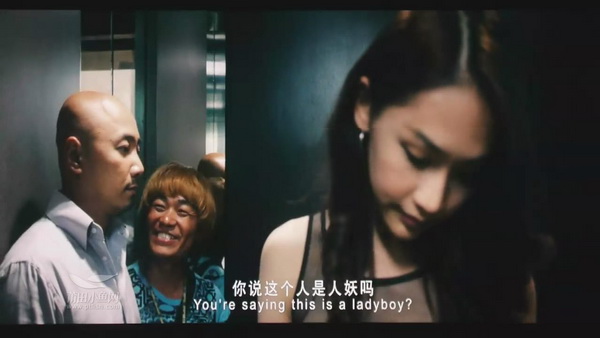


Jan 9, 2013
By Anchalee Kongrut,a journalist from the Bangkok Post who is on exchange with the Economic Observer
I usually feel nervous every time I hear that Thailand is to be depicted in a Hollywood movie or any foreign film for that matter.
Instead of being proud that aspects of my country will be screened to viewers around the world, I often find myself worrying that the portrayal won't go beyond the tired old cliches - the sexy Thai lady, water-splashing festivals, the monk with a tattoo and a wild full-moon party on the beach.
I had such misgivings when a Chinese friend recommended that I go and see Lost in Thailand, the fact that she described it as "the funniest film I ever watched," raised my suspicions further.
Sensing my reluctance, she added that "Maybe you won't find it as funny as it's full of jokes that only Chinese people are likely to get."
But unconvinced, I found excuses not to watch the film.
A week later, another Chinese friend called, asking whether I wanted to go and watch the movie with her.
She explained how she had already watched the film the day before but she now wanted to go and watch it again with me.
This movie must be quite something I thought, but I still wasn't convinced and I politely declined her invitation.
Finally, it was a visiting friend from Bangkok who persuaded me to go and see the film with her, winning me over by appealing to my curiousity - "You need to watch this film. Don't you want to know how Chinese people see us."
Thai people know how Westerners perceive our country - we've seen The Beach and Hangover 2, but we've got no idea how Chinese people perceive us.
So, reluctantly, in the interests of getting answers to my questions rather than with any expectations of having a good laugh, I slipped into the movie theater seat, brows knotted with concern.
Many films have been made about us supposedly constantly smiling Thais, they all contain the same cliched scenes (beaches, paddy fields and elephants tramping through rainforests) and a familiar cast of characters (the sexy bar girl and exotic Buddhist monks).
I'm not saying that these scenes and characters don't exist in Thailand, it's just that they're a partial representation.
These iconic images come to represent a complex country of over 70 million of people to such an extent that I still hear people
ask whether or not Thai people still travel by elephants!
As expected, Lost in Thailand portrays only a small slice of Thai life, but the film makers have managed to catch some of the more positive aspects of my country.
In the movie, Thais are polite, nonchalant and fun-loving people who have learned to live life at a slow yet peaceful pace.
The country has a mind-soothing exotic landscape, that may not be the most beautiful in the world, but it has a certain bucolic charm.
There are no daredevil taxi drivers or sellers trying to rip off tourists. There are no scenes of notorious Bangkok pavement cluttered with food vendors and motorcycle taxis.
Nor are there any scenes that touch upon the recent political clashes or floods.
The film shares the typical images so often displayed in Hollywood movies but bar girls are replaced with Lady-boys.
I sense that the film director must really have fallen for Thailand and I also detect an awareness of the importance of the monarchy - a jeep in the movie bears an "I Love the King" sticker.
My Chinese friend later told me that Xu Zheng, the film's director and co-star, has traveled to Thailand many times with his family and is fond of the country, especially the northern regions.
The movie is supposed to be light entertainment and it manages this quite well. I laughed along with the slapstick jokes despite not being much of a fan of comedy.
Lost in Thailand is likely to encourage many Chinese to travel to Chiang Mai or to go to Bangkok to experience the water-throwing Songkran festival on Silom Road.
It is not certain whether this movie will make it to cinemas in Thailand. I sincerely hope it will. My compatriots in Thailand will be able to laugh along with the jokes but most of all, they will be glad and appreciate the way a Chinese filmmaker has portrayed their country.
Though maybe it will prompt soul searching among Thai audiences, some might question whether we're still as polite, friendly and calm as we're portrayed in this film.

